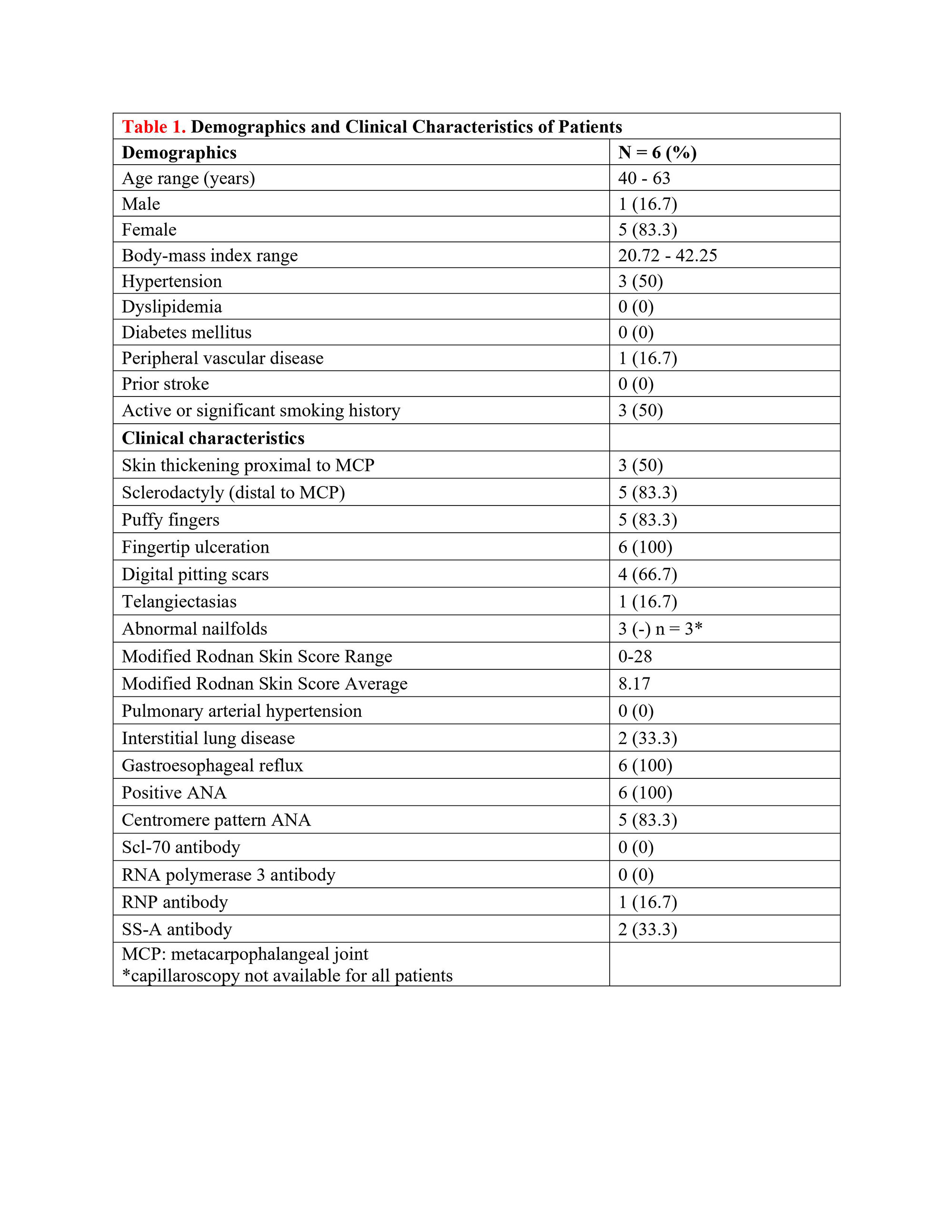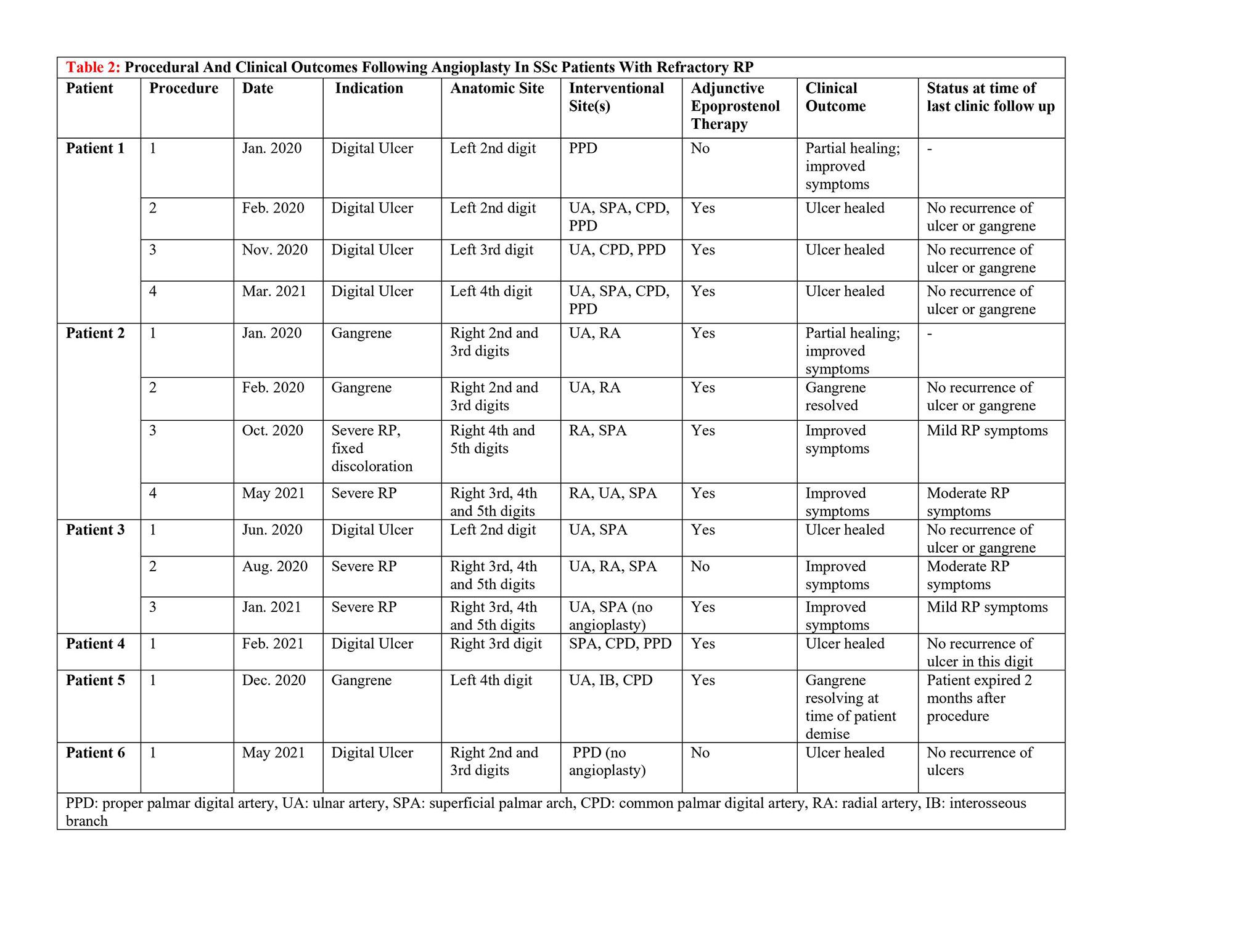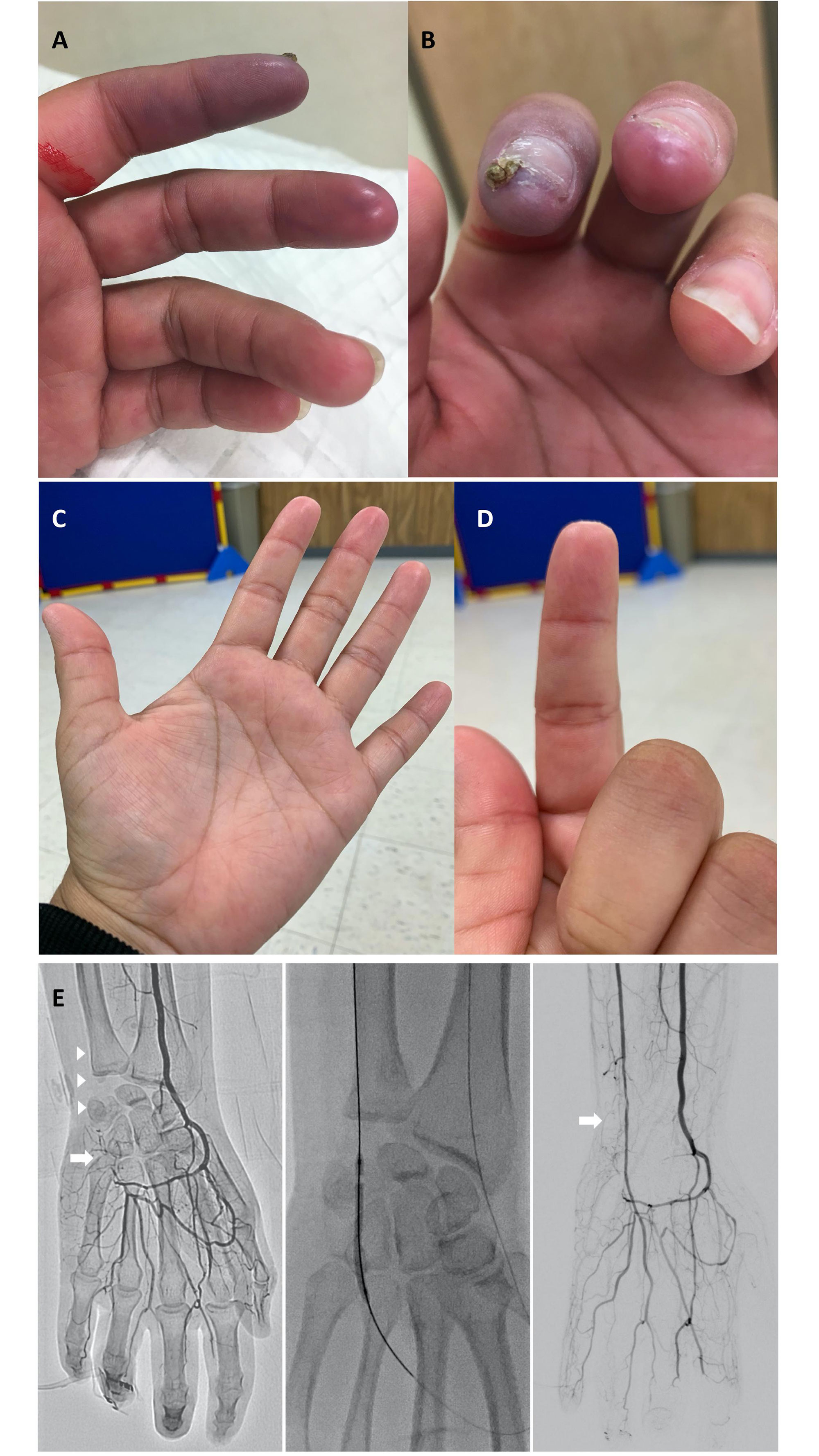Session Information
Date: Monday, November 14, 2022
Title: Systemic Sclerosis and Related Disorders – Clinical Poster III
Session Type: Poster Session D
Session Time: 1:00PM-3:00PM
Background/Purpose: The combination of Raynaud´s Phenomenon (RP) and vasculopathy, characterized by intimal proliferation and fibrosis, endothelial dysfunction, and smooth-muscle activation, can lead to severe digital ischemia in patients with systemic sclerosis (SSc). Despite standard treatments, a subset of patients sustain prolonged disability and experience tissue loss including digital amputation. We describe a new approach that combines vasodilatory therapy and percutaneous intervention to address refractory digital ischemia in patients with SSc.
Methods: This is a single-center, retrospective study of patients fulfilling the 2013 ACR/EULAR Classification Criteria for Systemic Sclerosis presenting with digital ulceration, gangrene or severe RP from January 1, 2020, to May 31, 2021 and who underwent percutaneous intervention of the hand and forearm followed by intravenous prostaglandin infusion. Patient demographics and clinical characteristics including manifestations of SSc, antibody profiles, presence of interstitial lung disease and/or pulmonary hypertension were collected by medical record review. Angiographic findings such as location of occlusive lesions and procedural strategies were collected. Outcomes, specifically status of cardinal digital ulceration, and improvement in symptoms as reported by patients, were obtained via progress notes, patient communication and clinical photographs.
Results: Six patients with SSc were included. The age range was 40-63 years, 5/6 subjects were female, 3/6 had past or current smoking history, 3/6 had hypertension, 1/6 peripheral vascular disease. All patients had positive antinuclear antibodies (ANA), 5 in centromere pattern and 1 in a speckled pattern. One patient had both RNP and SS-A antibodies, another had SS-A antibodies. Two patients had SSc sine skin sclerosis, 3 limited cutaneous disease and 1 diffuse cutaneous SSc. Two patients had interstitial lung disease without hypoxia and none had pulmonary arterial hypertension. Disease duration from onset of RP to time of intervention ranged from 3 to 9 years. Five out of 6 patients were on calcium channel blockers and phosphodiesterase inhibitors at the time of the angioplasty; the 6th patient was newly diagnosed and not on medication. (Table 1).
Fourteen percutaneous interventions were performed. Three patients had multiple procedures. Ulnar artery occlusion (UAO) was found in 13/14 angiograms. Most patients presenting with a digital ulceration had healed after the intervention, 2 patients required a repeat intervention for the same lesion. All patients reported symptomatic improvement and none progressed to auto-amputation of the digits. (Table 2) No adverse events from the procedures were reported. Figure 1 shows before and after intervention photographs for one of the patients along with the angiographic findings.
Conclusion: SSc-associated digital ischemia is a cause of significant morbidity. UAO is a prevalent finding in our cohort and highlights the severity of the vasculopathy in SSc patients. Our study shows that percutaneous intervention of the vasculature of the hand is a safe approach which may restore blood flood to the digits, allow wound healing and prevent tissue loss.
To cite this abstract in AMA style:
Romero Karam L, Honan K, Arain S, Mayes M. A Novel Pharmaco-Interventional Approach for the Treatment of Refractory Digital Ischemia in Systemic Sclerosis – Percutaneous Revascularization Combined with Intravenous Vasodilatory Therapy [abstract]. Arthritis Rheumatol. 2022; 74 (suppl 9). https://acrabstracts.org/abstract/a-novel-pharmaco-interventional-approach-for-the-treatment-of-refractory-digital-ischemia-in-systemic-sclerosis-percutaneous-revascularization-combined-with-intravenous-vasodilatory-therapy/. Accessed .« Back to ACR Convergence 2022
ACR Meeting Abstracts - https://acrabstracts.org/abstract/a-novel-pharmaco-interventional-approach-for-the-treatment-of-refractory-digital-ischemia-in-systemic-sclerosis-percutaneous-revascularization-combined-with-intravenous-vasodilatory-therapy/



